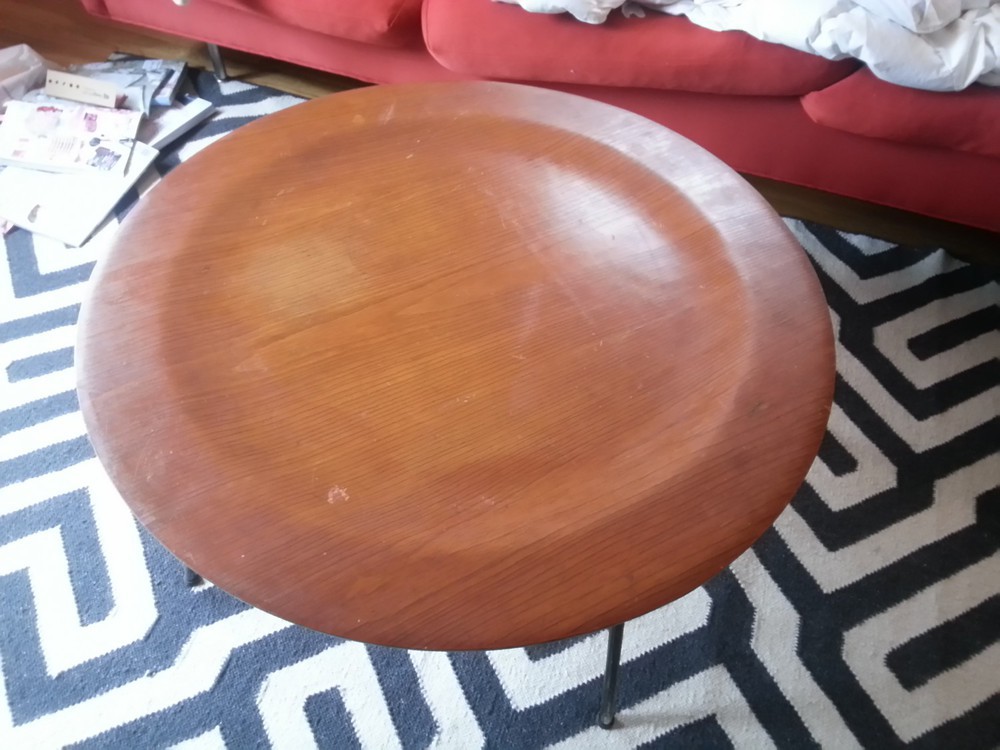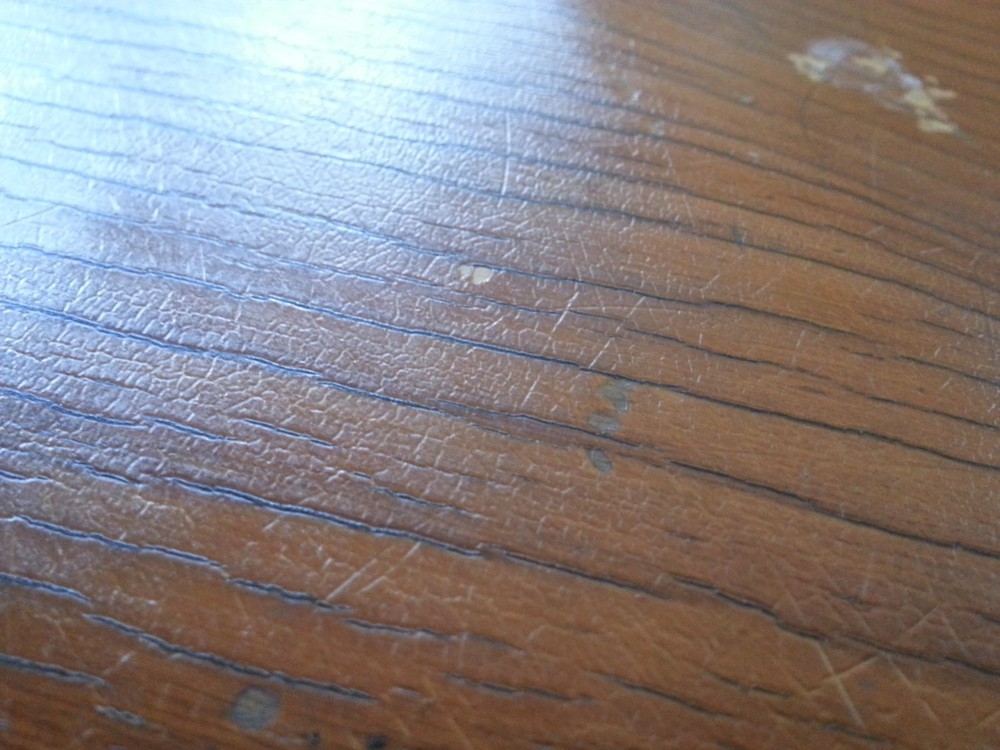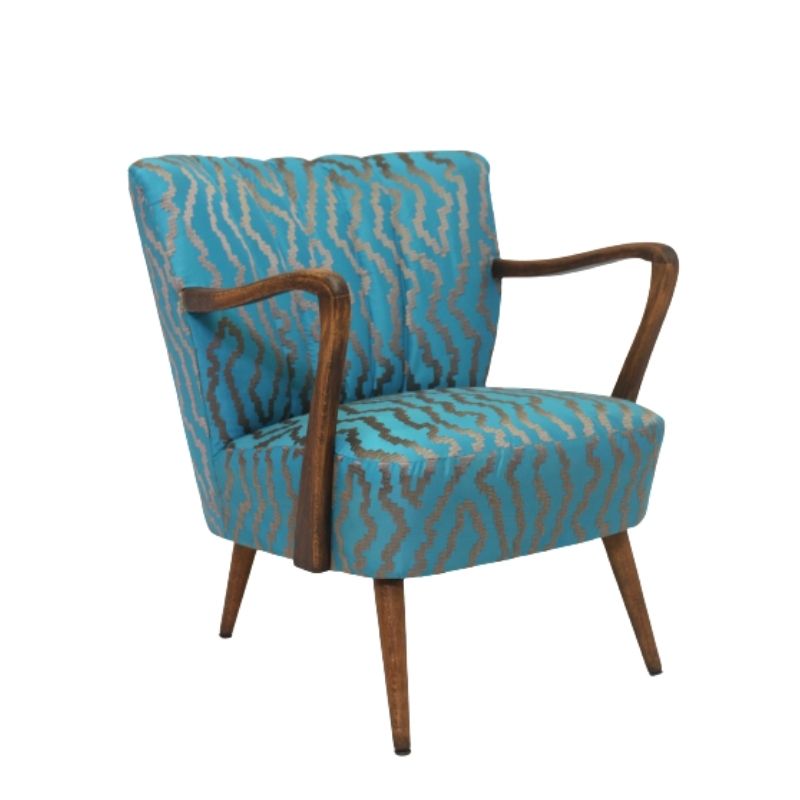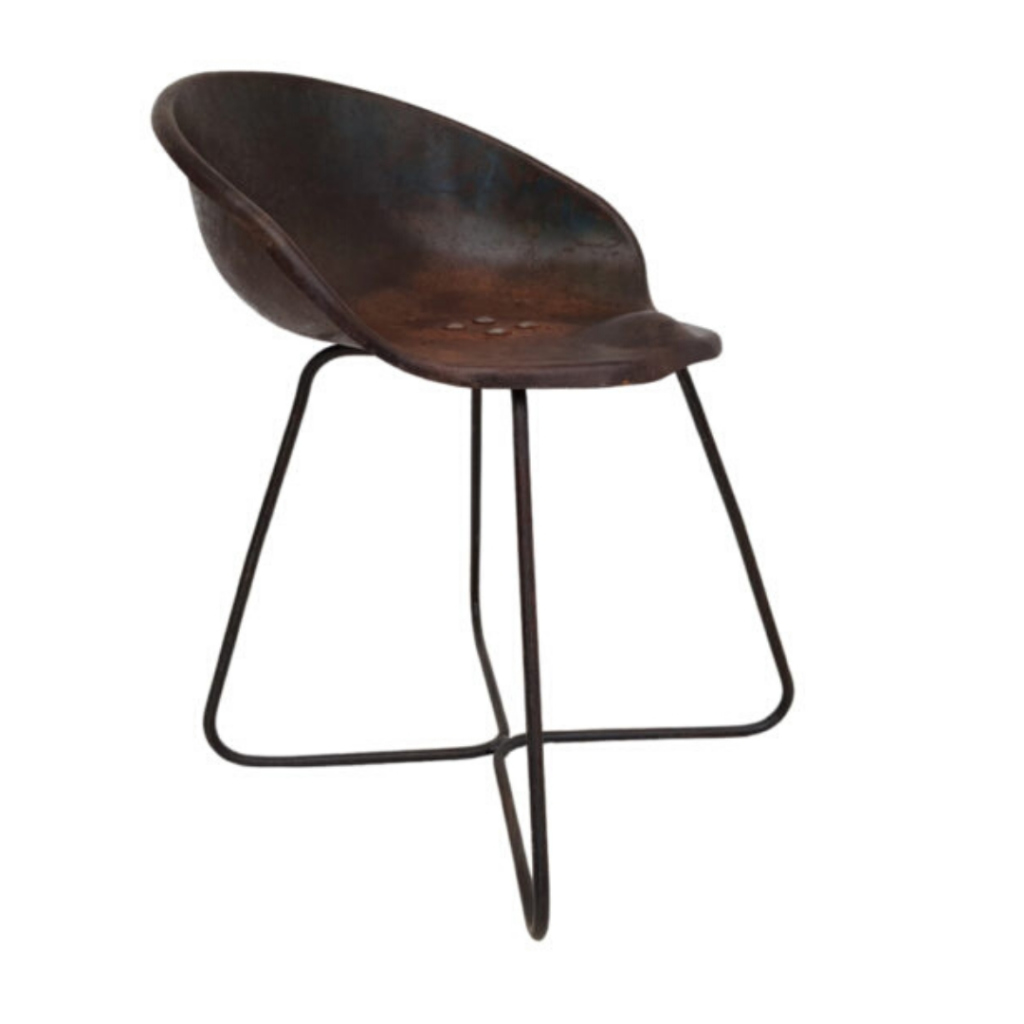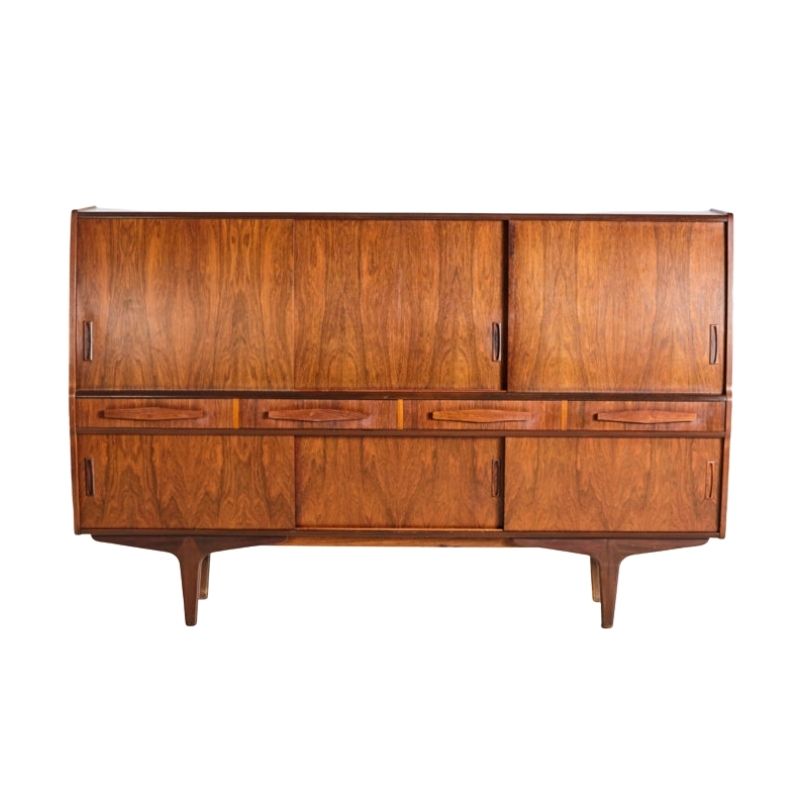I just bought a vintage Eames CTM and I'm hoping I will be able to date it. I believe it's ash, it has a black metal base attached with shock mounts, domes of silence glides, and an Evans label. It's in very good condition overall, only one chip to the veneer on the underside edge, and minor discoloration. However, the finish is a bit alligatored from continuous oiling over the years. I'm just wondering if this is something that could / should be repaired or if it's something that should be left alone (mostly from a value standpoint).To the DA moderators, not sure where this thread should go since it's sort of both an ID / Repair topic so in General Discussion it goes.Pictures to follow...
A great find!
This one has no blocks underneath, so its early. I cant pin it down at the moment but it is at least pre-1952, and probably more like 1948 ish. (?)
It may be a blessing that the chrome base was painted, as the paint may have preserved the chrome, and hopefully it should be easy to remove the paint without hurting the chrome.
And an Evans label... what more can you ask for? Really nice.
I will leave the wood question to the wood guys. It's beatiful the way it is though.
I knew I could count on you Eameshead. There are some other markings (in marker, crayon, idk) on the bottom that appear to be from the factory. It reads:
72
E991
I have no idea what that means, but it looks similar to the writing I've seen that says "CTM" on the bottom. The points where the paint is rubbing off the chrome looks very good. Minor pitting but definitely very good.
I just don't know if this is one of those things that's just best off preserving as is or if cleaning it up would be best from a value standpoint. I absolutely don't intend to sell it, but I don't want to make t worse than it is. I was planning on just seeing what some Murphy's Oil Soap would do and light steel wool. What was the original finish anyways? Laquered? Oiled?
Yes, it is painfully obvious that the site has some issues since the update.
I find it harder to read the print, and the ads are probably lowering readership also.
Perhaps the ads need to be part of the deal in the new world, but the type face should not have to be this hard to read.
Is there any harm in bumping up the default type size a notch or two to make the user experience a lot more enjoyable?
I know of at least one friend who vists the site much less often because of the ads. But for me, its that i have to squint to read.
The ads are brutal. I'm an auto enthusiast that frequents various auto related forums and the consistent model is ads along the side. Very intuitive, very organized. Not 37 feet of ads at the end of a thread with absolutely no distinction between responses and ads. I don't know who designed the layout, but it's not good plain and simple.
Anyways, @Eameshead what do you think about those markings. I'm not very knowledgeable about vintage Eames furniture apart from fiberglass chairs, so any info would be greatly appreciated.
Re the underside markings, I wish I knew.
The markings look similar to the grease-pencil markings sometimes seen on the bottom of the Eames shells that indicated the intended chair/base combo such as "MAX" or "DAX", so it is possible that it could have been a factory notation to designate the leg type (metal vs wood?) or leg color that this top was to receive.
Either that or the table had a number designation at one time? It also could just be a batch number of little or no significance.
These are just wild guesses though. I'm sure someone here will have an answer that is more conclusive. The marks definitely look original to the table, as they have that familiar look.
Thanks Spanky, and yes I do that too.
I am admittedly a clueless Ludite when it comes to most of these two-key tricks, but even I knew that one! I just think things should be as easy as they can be. (And you know how I can't resist a good complaint!)
Dennis, I will keep looking for clues about the meaning of 72 and E991. I also thought the marking looked a little bit like " LEG 91". But you are most likely correct.
You might want to consult a pro regarding the finish. Your ultimate plan for the piece may influence your decision. If resale is the goal, leaving it as is would probably be my choice.
I think it's likely the "alligatoring" occured as a result of some kind of subsequent varnish applied over the original. Depending on what it is, it might be a candidate for reamalgamation. Shellac and lacquer will often respond to this treatment, while other natural or synthetic resins will not.
This isn't something I plan on selling anytime soon, but when the time comes I don't want to be kicking myself for not leaving it as-is. The current condition isn't anything to write home about (in my opinion). The base has been painted, the finish is uneven, and it's definitely had a varnish applied which certainly didn't help the value.
I can't imagine that removing the black paint and restoring the finish could destroy the value of the table, but I'm all ears to those who say otherwise...
If you need any help, please contact us at – info@designaddict.com


